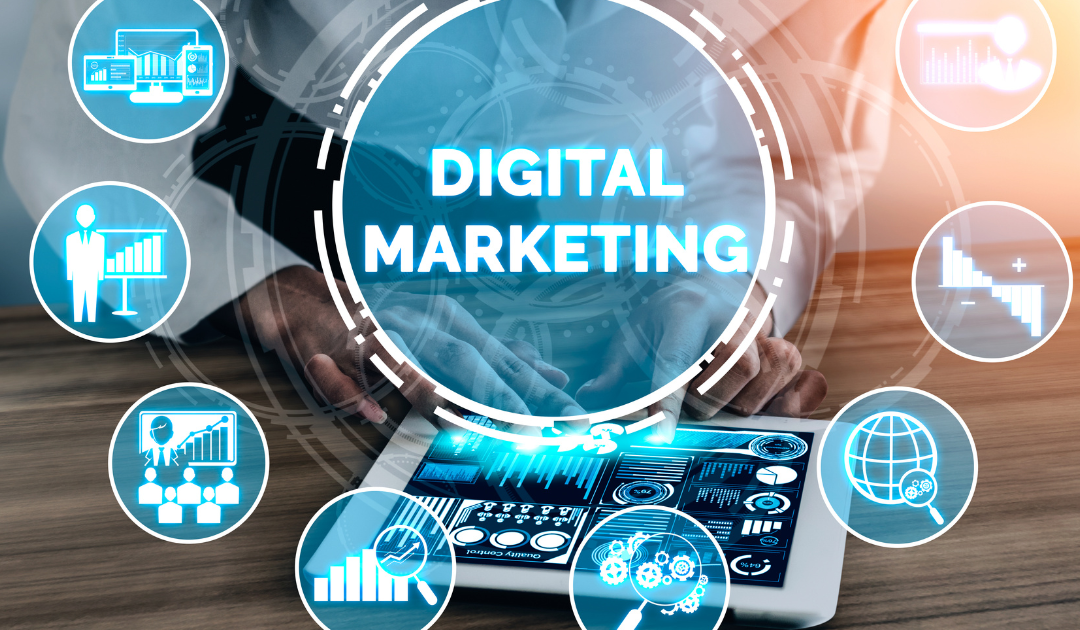What is Digital Marketing?
In the ever-evolving landscape of the digital age, businesses are constantly seeking innovative ways to connect with their target audience. Digital marketing has emerged as a powerful tool to navigate this dynamic terrain. In this comprehensive guide, we’ll delve into the fundamentals of digital marketing, exploring its key components, strategies, and the transformative impact it can have on businesses.
Understanding Digital Marketing:
At its core, digital marketing encompasses a broad spectrum of online strategies and tactics designed to promote products, services, or brands. Unlike traditional marketing channels, digital marketing leverages the power of the internet, allowing businesses to reach a global audience with unprecedented precision. From small startups to multinational corporations, digital marketing has become an integral part of the modern business toolkit.
Key Components of Digital Marketing:
Search Engine Optimization (SEO):
SEO is the practice of optimizing a website to rank higher in search engine results. By strategically incorporating relevant keywords, creating high-quality content, and improving website structure, businesses aim to enhance their visibility on search engines like Google. A strong SEO strategy is fundamental to driving organic traffic and increasing online visibility. Learn SEO here.
Social Media Marketing:
Social media platforms have become hubs for engagement and interaction. Social media marketing involves creating and sharing content on platforms like Facebook, Instagram, Twitter, and LinkedIn to promote a brand or product. The goal is to build a community, foster brand loyalty, and drive traffic to the company’s website.
Content Marketing:
Content is king in the digital realm. Content marketing involves creating and distributing valuable, relevant, and consistent content to attract a clearly defined audience. Blogs, articles, videos, and infographics are common forms of content that businesses use to educate, entertain, and engage their target audience.
Email Marketing:
Despite the rise of new communication channels, email marketing remains a potent tool for businesses. It involves sending targeted messages to a specific group of people, nurturing leads, and maintaining customer relationships. Personalization and segmentation are key to successful email marketing campaigns. Some of the best email marketing tools are Klaviyo, MailChimp and Constant Contact.
Pay-Per-Click (PPC) Advertising:
PPC advertising allows businesses to display ads on search engines and other online platforms. Advertisers pay a fee each time a user clicks on their ad. This model provides a cost-effective way to drive traffic to a website and is often used in conjunction with SEO efforts.
Affiliate Marketing:
In affiliate marketing, businesses partner with affiliates who promote their products or services and earn a commission for each sale or lead generated through their efforts. It’s a performance-based model that incentivizes affiliates to actively market the products they promote.
Analytics and Data-driven Marketing:
One of the distinctive advantages of digital marketing is the ability to track and analyze campaign performance in real-time. Businesses leverage analytics tools to gain insights into customer behavior, preferences, and the effectiveness of their marketing strategies. Data-driven decisions enable continuous improvement and optimization.
Digital Marketing Strategies:
Integrated Marketing Campaigns:
Successful digital marketing often involves the integration of multiple channels. A cohesive approach that combines SEO, social media, content, and other strategies ensures a consistent brand message across various platforms.
Targeted Advertising:
Digital marketing allows businesses to precisely target their audience based on demographics, interests, and online behavior. This targeted approach enhances the efficiency of advertising campaigns and maximizes return on investment.
Personalization:
Personalization is a key trend in digital marketing. Businesses use data to tailor their messages and offerings to individual preferences, creating a more personalized and engaging experience for customers.
Mobile Marketing:
With the increasing use of smartphones, mobile marketing has gained prominence. Optimizing websites for mobile devices, creating mobile-friendly content, and utilizing mobile advertising channels are crucial aspects of a comprehensive digital marketing strategy.
Impact of Digital Marketing on Businesses:
Global Reach:
Digital marketing breaks down geographical barriers, enabling businesses of all sizes to reach a global audience. This expanded reach opens up new opportunities for growth and customer acquisition.
Cost-effectiveness:
Compared to traditional marketing channels, digital marketing often proves more cost-effective. PPC advertising, for instance, allows businesses to set budget constraints and pay only for actual clicks, optimizing budget allocation.
Measurable Results:
The ability to track and measure the performance of digital marketing campaigns is a significant advantage. Businesses can analyze data in real-time, assess the success of strategies, and make data-driven decisions for continuous improvement.
Improved Customer Engagement:
Digital marketing fosters direct and immediate communication with customers. Social media platforms, in particular, provide channels for businesses to engage in conversations, address concerns, and build lasting relationships.
Enhanced Targeting:
The granularity of targeting in digital marketing ensures that messages are delivered to the right audience. This precision enhances the relevance of marketing efforts, increasing the likelihood of conversions.
Conclusion:
Digital marketing has evolved into a cornerstone of modern business strategies, offering a plethora of tools and techniques to connect with audiences in the digital realm. From search engine optimization and social media marketing to content creation and analytics, businesses have a wide array of options to build a robust online presence and drive success.
Embracing the transformative power of digital marketing is no longer a choice but a necessity in today’s competitive landscape. As technology continues to advance, businesses that harness the potential of digital marketing will not only survive but thrive in the digital age.


